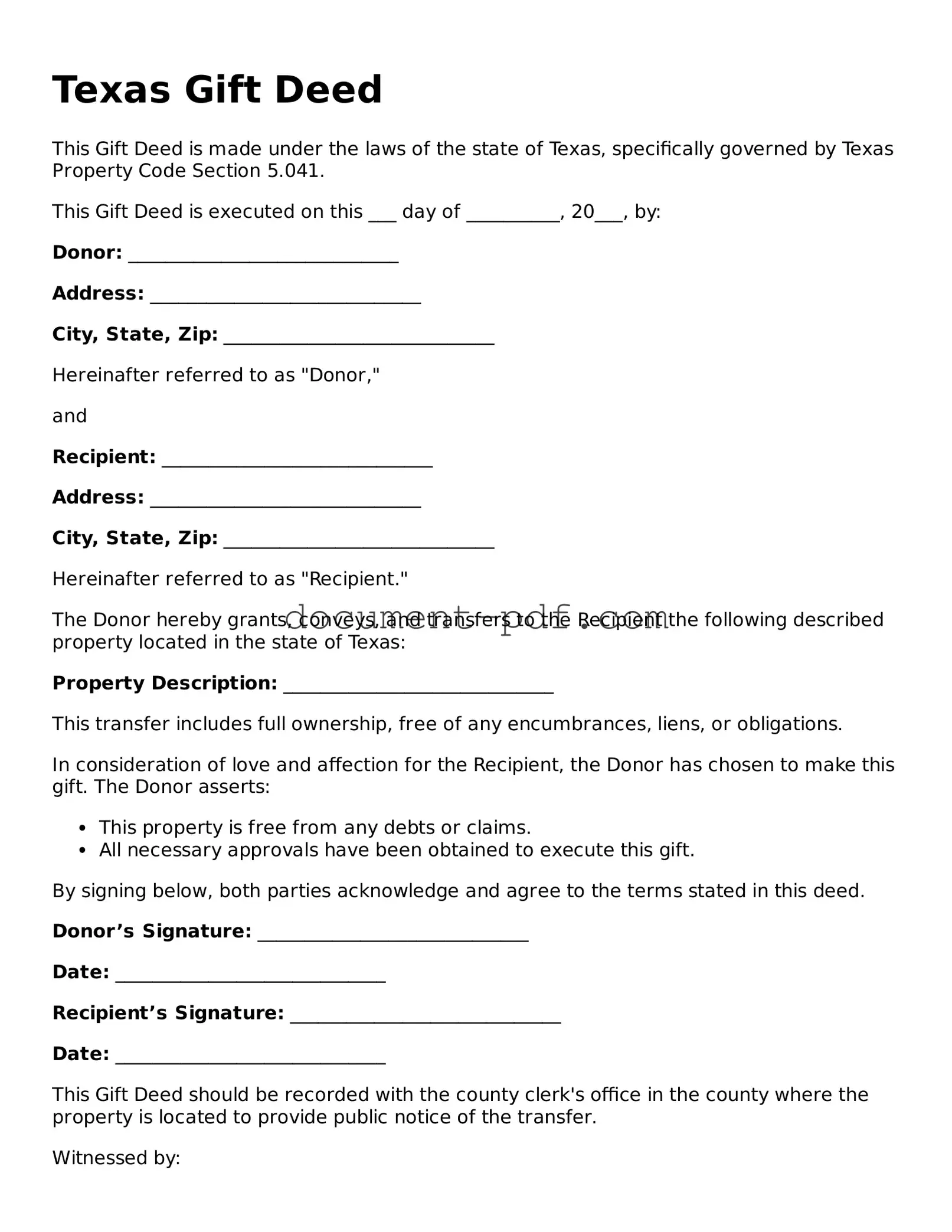Attorney-Verified Texas Gift Deed Template
A Texas Gift Deed form is a legal document used to transfer ownership of property from one person to another without any exchange of money. This form can simplify the process of gifting real estate, ensuring that the transfer is clear and legally binding. If you’re ready to gift property, fill out the form by clicking the button below.
Access Gift Deed Editor Here

Attorney-Verified Texas Gift Deed Template
Access Gift Deed Editor Here
Finish the form without slowing down
Edit your Gift Deed online and download the finished file.
Access Gift Deed Editor Here
or
Click for PDF Form
